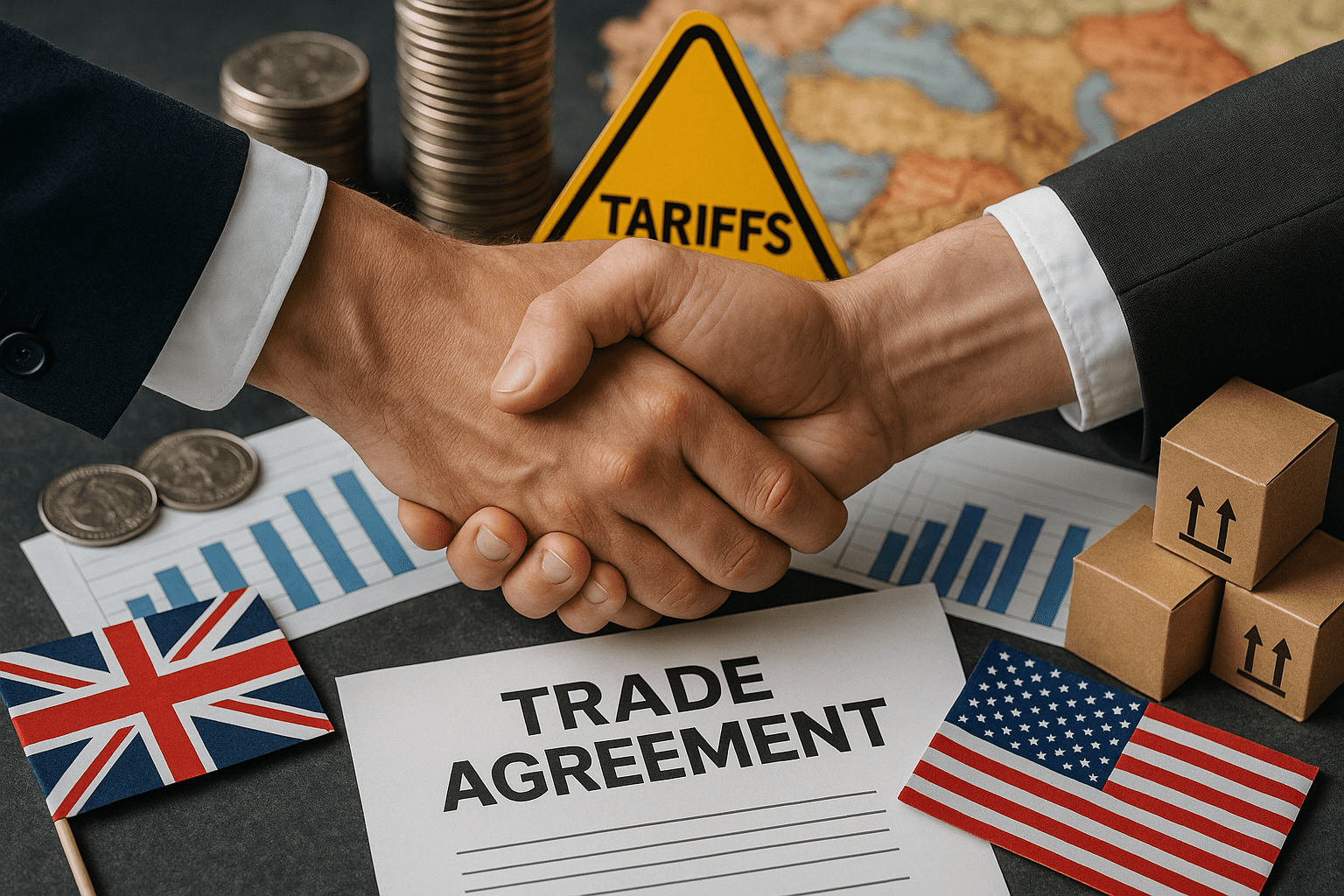Global commerce relies on the seamless movement of goods, but transportation risks, from accidents to legal liabilities, pose threats, ITM Assistant Editor Caitlin Gittins investigates
In the vast and interconnected web of global commerce, the movement of goods is the lifeblood that sustains economies and fuels growth. Yet, amidst the complexities of modern transportation, there are risks that can disrupt the flow of trade and jeopardise the interests of stakeholders. From accidents on the roads to incidents at sea, navigating liability issues in transportation demands a keen understanding of legal frameworks, risk management strategies and insurance solutions. In this article, we embark on a journey to explore the challenges and solutions surrounding liability in transportation, shedding light on the vital role of proactive risk mitigation in safeguarding the integrity of supply chains.
The Landscape of Liability
Liability in transportation encompasses a diverse array of risks, including accidents, damages, and losses, each presenting unique challenges for stakeholders across the supply chain. Whether goods are transported by air, sea, land, or rail, the potential for liability looms large, necessitating careful consideration and proactive measures to mitigate risks.
Air Transportation: Speed and Vulnerability
Companies operating in the air transportation sector often prioritise comprehensive insurance coverage tailored to the challenges of flight, safeguarding against potential accidents such as collisions or cargo damage due to turbulence. This proactive approach ensures both the company and its clients are adequately protected against unforeseen contingencies.
As SHIPIT Logistics understands, dealing with international and domestic cargo transportation is a challenge for any business owner. In their ‘Comprehensive Guide to Cargo Insurance’ they explain that “Cargo insurance is an essential part of risk management, and multiple coverage options are available to serve diverse business interests.”
Additionally, adherence to international conventions such as the Montreal Convention of 1999 establishes a framework for liability allocation and fair compensation in the event of air transportation accidents. By staying informed about evolving regulations and industry standards, companies underscore their commitment to legal compliance and the safety of their cargo and clients.
While the Montreal Convention of 1999 remains a significant international treaty governing air transportation, particularly concerning liability and compensation in the event of accidents, there have been several updates and developments in aviation law since then.
One notable example is the Cape Town Treaty, also known as the Cape Town Convention and its Aircraft Protocol, which came into force in 2006. While not specifically focused on liability issues, the Cape Town Treaty aims to improve financing and leasing practices in the aviation industry. It provides a framework for the registration of aircraft and establishes international standards for security interests in aircraft, engines, and other aviation-related assets. While this treaty primarily addresses financial matters, its provisions can indirectly influence liability considerations by enhancing the overall safety and stability of the aviation sector.
Additionally, various amendments and updates to aviation regulations and industry standards have been introduced by international organisations such as the International Civil Aviation Organisation (ICAO) and regional regulatory bodies. These changes often reflect advancements in technology, evolving safety practices and lessons learned from past incidents. Staying informed about these developments is crucial for companies operating in the aviation industry to ensure compliance with relevant regulations and standards and to enhance the safety and security of their operations.
Therefore, while the Montreal Convention of 1999 remains a cornerstone of aviation law, it’s essential for companies to also consider other relevant treaties, regulations, and industry standards to maintain legal compliance and promote safety in air transportation.
Beyond insurance and legal obligations, advanced risk management strategies must of course be implemented, including regular aircraft maintenance checks, strict safety protocols for cargo handling and ongoing staff training programs. These measures contribute to maintaining optimal performance and safety standards throughout operations.
In short, although air transportation offers unparalleled benefits for global trade, it also presents significant liabilities necessitating careful risk management. Through a combination of comprehensive insurance coverage, adherence to international conventions and proactive risk mitigation strategies, companies demonstrate how stakeholders can navigate these challenges with diligence and ensure the secure and timely delivery of goods worldwide
Navigating Maritime Risks
Sea transportation, as a fundamental component of global trade, is characterised by a multitude of liability challenges that necessitate meticulous attention. These challenges encompass a spectrum of potential risks, ranging from ship collisions and cargo spills to container losses, each capable of precipitating significant financial and logistical consequences. The expansive nature of the maritime domain, coupled with the intricacies of maritime law, underscores the importance of a nuanced approach to addressing liability issues in sea transportation.
One of the primary frameworks guiding liability in sea transportation is established by international conventions such as the Hague-Visby Rules or the Rotterdam Rules. These conventions delineate the rights and responsibilities of parties involved in maritime commerce, providing a standardised basis for addressing liability in cases of loss or damage to cargo. However, navigating these conventions requires a comprehensive understanding of their provisions and implications, as well as familiarity with relevant case law and precedents.
In addition to legal considerations, stakeholders in sea transportation frequently employ practical measures to mitigate risks – which as SHIPIT Logistics points out are “an integral part of every shipping strategy” – and protect their interests. This often involves the negotiation and execution of comprehensive contracts of carriage, which establish the terms and conditions governing the transportation of goods by sea. These contracts may include clauses specifying liability limits, indemnification provisions, and dispute resolution mechanisms, offering clarity and certainty in unforeseen contingencies.
Furthermore, securing marine cargo insurance plays a pivotal role in risk mitigation efforts within the maritime industry. Marine cargo insurance provides essential coverage against a diverse array of perils, including sinking, stranding, or jettison, thereby offering financial protection against potential losses arising from maritime incidents. By obtaining adequate insurance coverage, stakeholders can mitigate the financial risks associated with sea transportation and safeguard their assets against unforeseen eventualities.
Overall, effective management of liability in sea transportation necessitates a multifaceted approach that encompasses legal expertise, contractual diligence and insurance solutions. By leveraging international conventions, negotiating robust contracts of carriage and securing comprehensive insurance coverage, stakeholders can navigate the complexities of maritime commerce with confidence and resilience, ensuring the continued integrity and efficiency of global trade routes.
On the Road and Rails
Land transportation, encompassing the movement of goods by both road and rail, serves as an indispensable conduit for domestic and international trade. However, this mode of transport is not immune to risks, as accidents, theft, and cargo damage pose significant challenges to stakeholders operating within the realm of land transportation.
Liability in land transportation is primarily governed by a complex tapestry of national laws and regulations, which delineate the rights and obligations of carriers and cargo owners. These legal frameworks vary across jurisdictions, necessitating a comprehensive understanding of local statutes and precedents to effectively navigate liability issues.
To further enhance risk mitigation in land transportation, stakeholders often opt for specific types of insurance coverage tailored to address the unique challenges encountered in road or rail transit. One such specialised insurance option is haulage insurance, which offers comprehensive coverage for goods transported via road haulage.
Haulage insurance, offered by insurers like Zurich Insurance Group, Aviva and Chubb and others, provides protection against a range of risks inherent in road transportation, including accidents, theft, damage, and loss of cargo during transit. This type of insurance is particularly valuable for companies involved in the transportation of goods by road, as it safeguards against financial losses resulting from unforeseen events such as collisions, overturns, or cargo theft. It can also be customised to suit the specific needs and requirements of individual businesses. Coverage options may include protection against damage caused by weather conditions, fire, or vandalism, as well as liability coverage for third-party property damage or bodily injury.
In addition to haulage insurance, there are other specialised insurance products tailored to address specific aspects of land transportation. One such product is motor truck cargo insurance, which provides coverage for the goods being transported by trucking companies. This type of insurance protects against various risks such as theft, fire, collision, or natural disasters that may occur during transit. It’s essential for both trucking companies and their clients, as it ensures financial protection in case of cargo loss or damage.
Another specialised insurance product is rail freight insurance, designed specifically for cargo transported by rail. Similar to motor truck cargo insurance, rail freight insurance covers risks associated with transporting goods via railways. This includes protection against theft, damage, derailment, or accidents during transit. For companies relying on rail transportation, this insurance provides peace of mind knowing their cargo is financially safeguarded throughout its journey.
Proactive risk management strategies, once again, also play a crucial role in enhancing the resilience of land transportation operations. This may include the implementation of stringent safety protocols, regular maintenance checks on vehicles and infrastructure and the utilisation of advanced tracking and monitoring systems to enhance visibility and oversight throughout the transportation process.
Additionally, fostering a culture of collaboration and open communication among stakeholders within the intricate web of the land transportation ecosystem is not just advantageous but essential in effectively mitigating liability risks. This collaborative approach entails establishing robust channels for sharing pertinent information, insights, and best practices among all parties involved in the transportation process, including shippers, carriers, freight forwarders, insurers and regulatory authorities.
Through proactive engagement and information exchange, stakeholders can gain a comprehensive understanding of the risks inherent in their operations and collectively develop strategies to address them. This collaborative effort extends beyond mere risk identification to encompass the development and implementation of proactive measures aimed at preventing incidents and minimising potential liabilities. Such measures may include the adoption of advanced safety protocols, investment in technology-driven risk management solutions and the establishment of industry-wide standards and guidelines.
Moreover, ongoing communication and collaboration facilitate swift response and resolution in the event of unforeseen incidents, allowing stakeholders to mitigate damages, minimise disruptions and maintain the integrity of the transportation network. In essence, a collaborative and communicative approach not only enhances risk awareness and preparedness but also fosters resilience, adaptability and sustainability within the land transportation ecosystem, ultimately ensuring the safe, efficient and reliable movement of goods across diverse geographical landscapes.
In a nutshell, while land transportation serves as a vital artery for global trade, it is not without its inherent risks. Through a combination of legal compliance, comprehensive insurance coverage, proactive risk management strategies, and collaborative efforts, stakeholders can navigate the complexities of land transportation with confidence and ensure the safe and efficient movement of goods across borders and continents.
Proactive Risk Management: Safeguarding Supply Chains
Effectively navigating liability issues in transportation demands a proactive stance towards risk management, encompassing a multifaceted approach that includes comprehensive insurance coverage, adherence to legal compliance and the establishment of robust contractual agreements.
Understanding the unique challenges and solutions associated with each mode of transport is essential for stakeholders seeking to safeguard the integrity of their supply chains. This entails a thorough assessment of the specific risks inherent in air, sea, land, or rail transportation and the implementation of tailored risk mitigation strategies accordingly.
Comprehensive insurance coverage serves as a critical pillar of proactive risk management in transportation. By procuring insurance policies that address the distinct vulnerabilities of each mode of transport, stakeholders can mitigate financial risks and ensure adequate protection against potential liabilities arising from accidents, damages, or losses.
Adherence to legal compliance is equally vital in navigating liability issues in transportation. This involves staying abreast of relevant laws, regulations and international conventions governing each mode of transport, and ensuring full compliance with applicable standards and obligations. By adhering to legal requirements, stakeholders can minimise the risk of legal disputes and liabilities, thereby safeguarding the integrity of their supply chains.
Furthermore, the establishment of robust contractual agreements plays a pivotal role in proactive risk management. By negotiating and formalising contracts that clearly outline the rights, responsibilities, and liabilities of all parties involved in transportation arrangements, stakeholders can mitigate uncertainties and establish a framework for effective risk allocation and resolution.
As the global economy continues to evolve and expand, the importance of proactive risk management in transportation cannot be overstated. By embracing proactive risk management strategies, including comprehensive insurance coverage, legal compliance, and robust contractual agreements, stakeholders can navigate the complexities of modern transportation with confidence, ensuring the continued vitality and resilience of global trade.
Read more news and exclusive features in our latest issue here.
Never miss a story… Follow us on:
International Trade Magazine
@itm_magazine
@intrademagazine
Media Contact
Joseph Clarke
Editor, International Trade Magazine
Tel: +44 (0) 1622 823 920
Email: editor@intrademagazine.com





